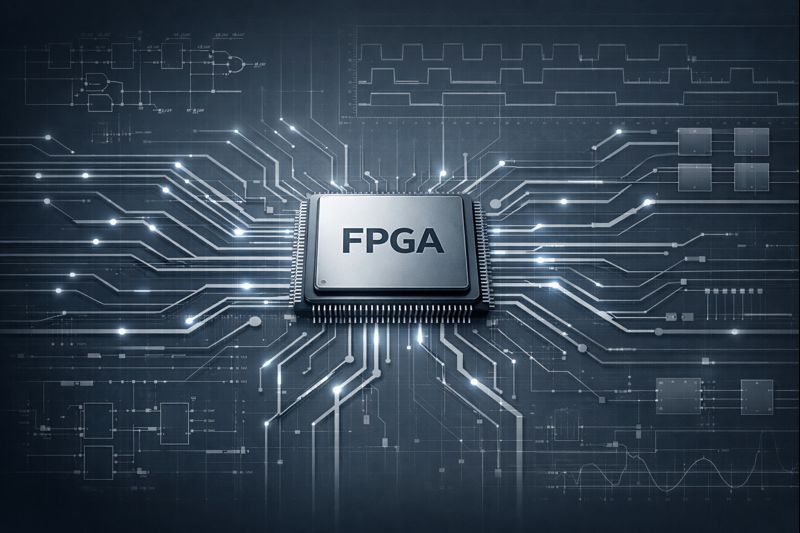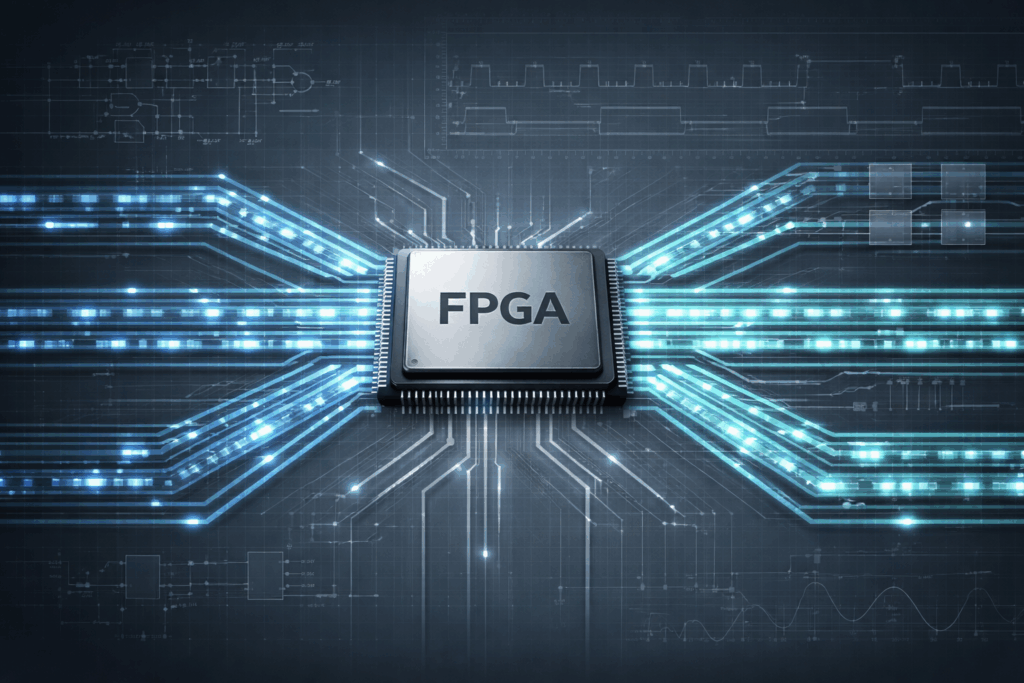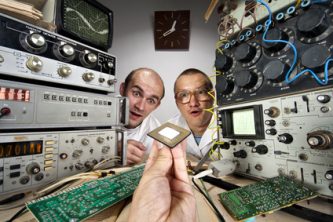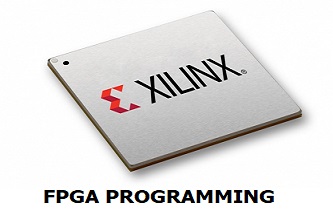Field Programmable Gate Array (FPGA) History
23/02/2018, hardwarebee
By the 1980s, the FPGA industry has been born through the established programmable logic devices (PLD) and the programmable read only memory (PROM). Unlike PLD and PROM which had to be hard-wired programmed during manufacturing, FPGA allowed the programming to happen later in the process, even by the consumer, this allowed designer to add features (or fix bugs) after the product deployment.
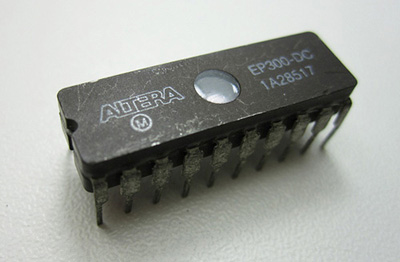
Image credit: Altera
The first reprogrammable logic device was crated in 1984 by a company called Altera. It was the EP300 and offered a window that let an ultra-violet light onto EPROM cells, so they could be erased. The cells contained the design configuration which meant that it could be changed when needed. The foundation of FPGA was expanded by LuVerne R. Peterson and David W. Page in 1985 who created patents for logic blocks, gates, and programmable logic arrays.
In the late 1980s, the concept of FPGA was created through an experiment suggested by Steve Casselman with funding from the Naval Surface Warfare Center. His proposal was do create a computing device with over 600,000 reprogrammable gates. His work was successful, and he patented the creation in 1992.
By the mid-1990s, FPGA had exploded and revolutionized the industry. While networking and telecommunications were the biggest beneficiaries at the time, FPGA had expanded into automotive, industrial, and consumer applications for all types of electronic devices.
FPGA Applications Today
You can find FPGA in any devices which are computable because they are faster for certain applications and optimize the number of gates being used, you can find them in numerous industries or applications such as the following:
- Aerospace, Outer Space, and Defense
- Audio, Automotive, and Broadcast
- Consumer Electronics, Data Centers, and High-Performance Computing
- Instruments of Science, Industrial, and Medical
- Security Applications, Wired & Wireless Communications, and More
So many different fields have been touched by FPGA and the list continues to grow as electronic devices make their way into more aspects of people’s lives.
Read about Altera history here and about Xilinx history here.
Looking for FPGA design companies or consultants, try this page: https://hardwarebee.com/vendor_category/fpga-design-services/


